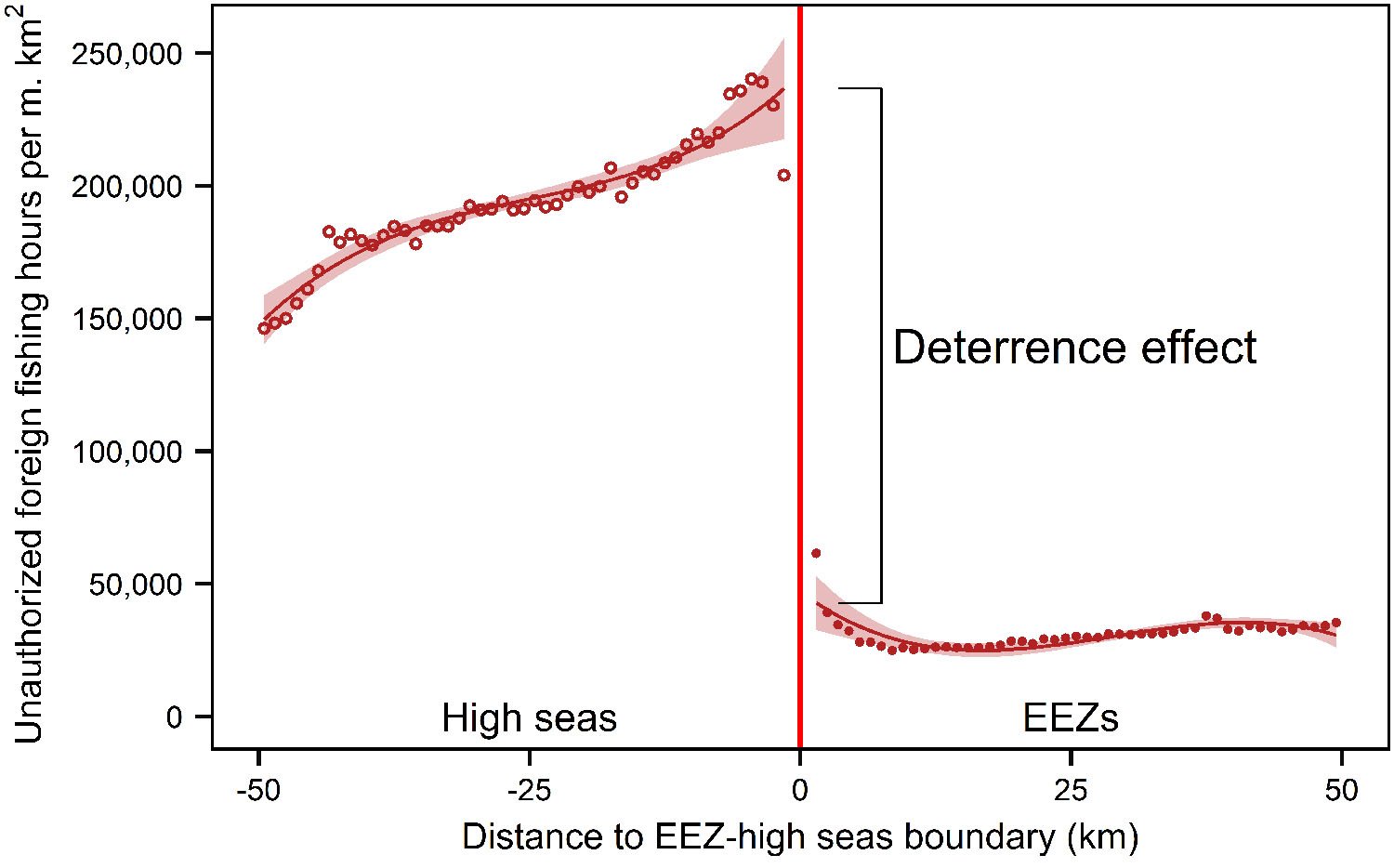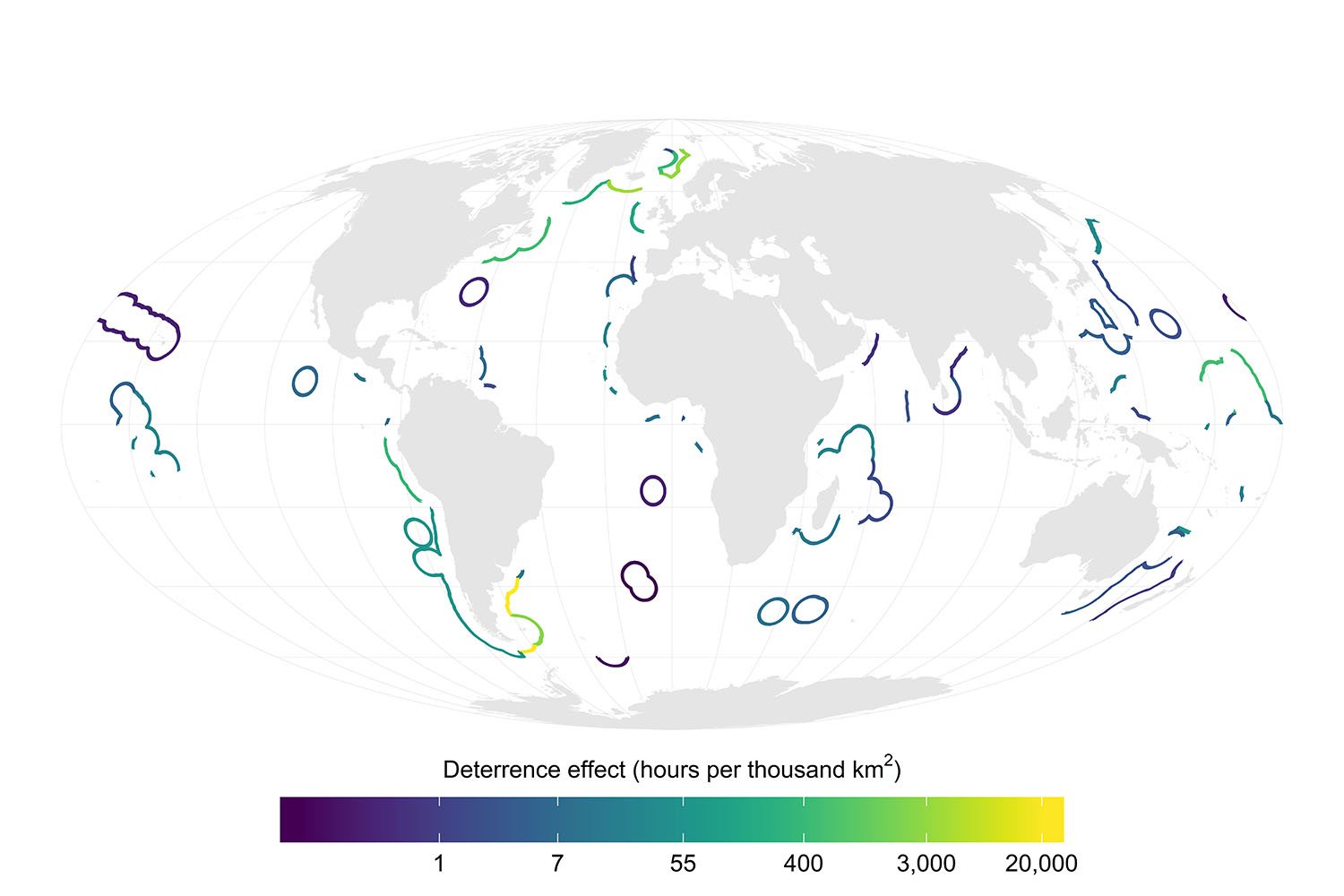A groundbreaking study published today in Nature Sustainability finds that countries can make a big impact in patrolling their coasts and enforcing their Exclusive Economic Zones as long as the benefits of protecting those maritime resources prove lucrative enough.
The study by UC Berkeley researcher Gabriel Englander suggests that such often dismissed international laws can actually play a significant role in protecting the world’s global marine ecosystems.
More than 95% of global marine fish catch occurs inside Exclusive Economic Zones (EEZs), and countries have the exclusive right to manage and use all natural resources within their EEZs.

Englander finds that deterrence of unauthorized foreign fishing vessels has been particularly effective off the coasts of Argentina, Peru, Canada, the Marshall Islands, Iceland, the Falkland Islands, the Faroe Islands and Norway.
[rand_post]
Those areas, which all have commercially prized fish in their waters, experience pressure but are largely respected by unauthorized foreign fishing vessels. In the study, they make up 97% of the deterrence effect of EEZs as measured by global satellite transponders that monitor individual vessels in real-time. Unauthorized fishing fell by 81% just inside EEZs globally, the study found.

The results are the first to demonstrate that assigning property rights across countries leads to the protection of fisheries from unauthorized fishing. That finding suggests that property rights could be used to protect other wildlife and natural resources as well.
“EEZs are possibly the toughest environmental enforcement problem on the planet”, says Englander. “They cover almost two-fifths of the ocean and their boundaries are 200 nautical miles from shore. If we can make unauthorized fishing vessels respect EEZs, I think we have more capacity to protect and sustainably manage marine fisheries than we may have realized.”
Englander is a fifth year PhD Candidate in the Department of Agricultural and Resource Economics at UC Berkeley and is a member of the Global Policy Lab.
